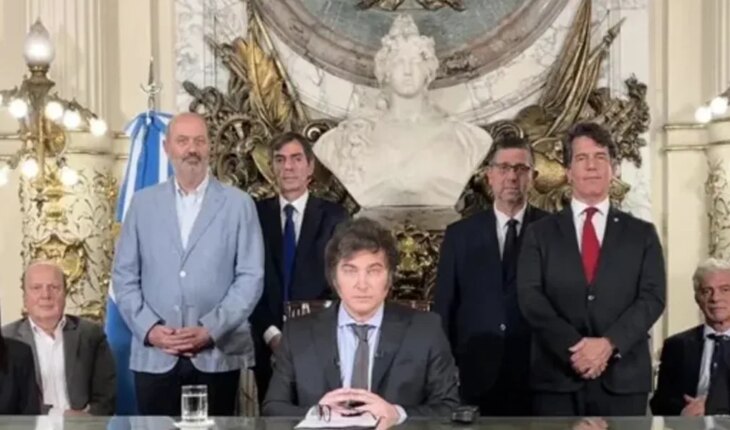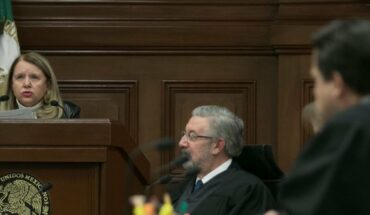President Javier Milei used the national network on Wednesday night to explain the scope of the Decree of Necessity and Urgency (DNU) of economic deregulation that contains the repeal and modification of some 300 laws. This is one of the fundamental measures for his government plan. And also one of the most ambitious. The text – presented after the first mobilisation against the administration that had just taken power – put the unions on high alert. The CGT announced a mobilization for next Wednesday and Héctor Daer, one of the members of the triumvirate that leads the workers’ federation, said that “there is a climate” of a general strike. Beyond the legal instances – the CGT has already announced that it will go to court – the resolution finds on its horizon a stumbling block, a priori, difficult to overcome. The path of the DNUThe Decree of Necessity and Urgency is a tool provided for in the Constitution that empowers the President to issue provisions of a legislative nature in exceptional circumstances in which it is impossible for Congress to follow the “ordinary procedure” for the approval of laws. Law 26,122, which regulates the scope of Congress’s intervention with respect to decrees issued by the Executive Branch, gives the Executive Branch a period of ten days from the issuance of the Decree to send it to the Permanent Bicameral Commission, which is made up of eight deputies and an equal number of senators, appointed by the president of each of the Chambers at the proposal of the parliamentary blocs, respecting the proportion of political representations. This Commission has not yet been formed. This Commission has a period of ten working days from the presentation made by the Chief of Staff to issue a ruling on the Decree and submit the opinion of the plenary to each of the Chambers. If the Commission is not issued within the stipulated period, the Chambers will devote themselves to the “express and immediate treatment” of the decree in question. To repeal it, it is necessary to reject it in both Deputies and Senators.An adverse panoramaJavier Milei won the runoff with ease. However, the distance he took away from his contender, Sergio Massa, is not reflected in Congress. After the general elections in October, the Libertarians were in a clear minority in both chambers: they have 37 deputies, out of a total of 257, and only seven of the 72 legislators that make up the upper house. The rejection among the legislators multiplied as the hours went by. The bloc of senators chaired by José Mayans issued a statement in which it warns that the path chosen by the Head of State to impose these measures “results in itself a virtual closure of Congress and a brutal subjugation of the powers of Parliament.” Even more intransigent, his colleagues in the Lower House claimed that “those who approve it will be infamous traitors to the Homeland.” A broad repudiation of the resolution also emerged within the ranks of Together for Change. More for the form than for the content. It so happens that except for a portion of the PRO, which is referenced in Mauricio Macri and Patricia Bullrich, the Cambio Federal bloc and the UCR were reluctant to accompany the DNU. They maintain that some of the reforms proposed by the President are positive, but insist that it should be up to Congress to discuss them for eventual approval. These are blocs that spoke out in favor of contributing to governability. Therefore, decisive for the fate of the Decree. The Civic Coalition, now out of the opposition coalition, also spoke out against the Decree. “The President’s DNU advances on the exclusive powers of the Legislative Branch. The great transformations must be discussed, agreed upon. We need reforms that are built on dialogue and consensus,” said former senator and current governor of Río Negro, Alberto Weretilneck. “A mega DNU is not the way. The reforms that Argentina needs will be achieved through dialogue and democratic consensus,” said legislator Carlos Espinola, head of the Federal Unity bloc in the Upper House.In this context, the president of the Senate, Victoria Villarruel, and her counterpart in the Chamber of Deputies, Martín Menem, must articulate parliamentary agreements to avoid what would be the first major defeat of the Gobierno.La fall of the Decree would be something unprecedented: no DNU was invalidated by both chambers. The only precedent is from 2020, when under the presidency of Alberto Fernández, the Senate rejected a DNU signed by former President Mauricio Macri.
The path of the DNU in Congress and what its fate may be
December 22, 2023 |




